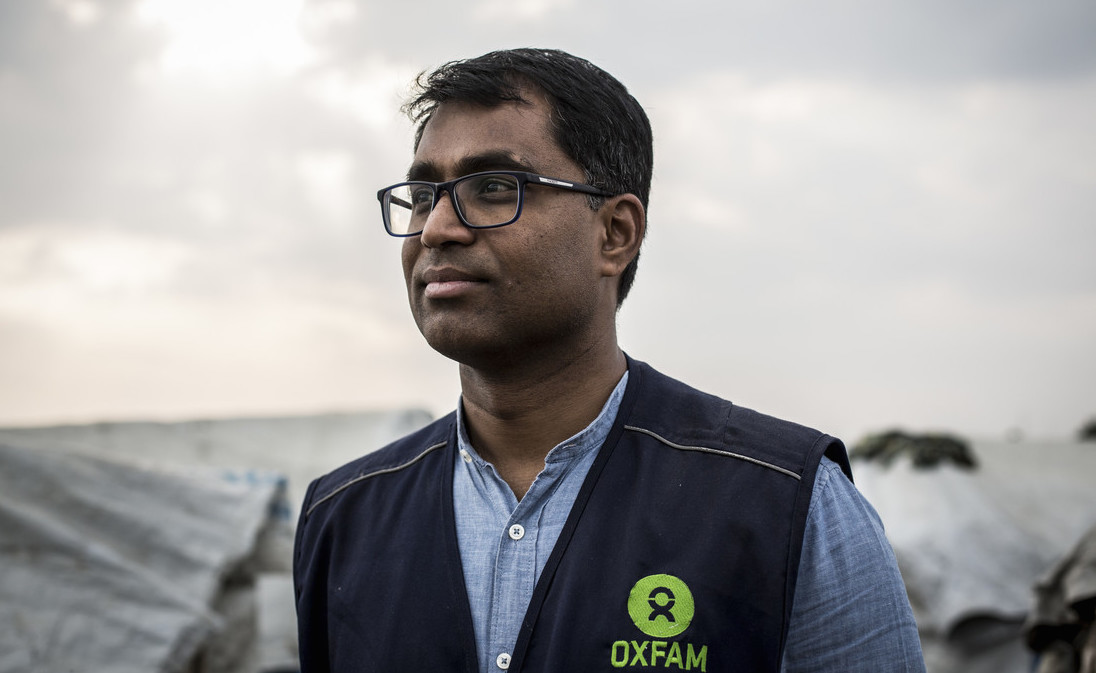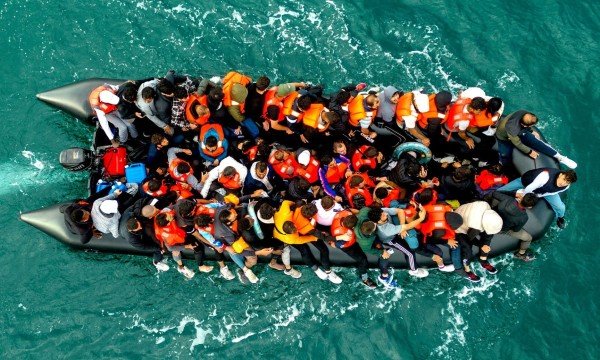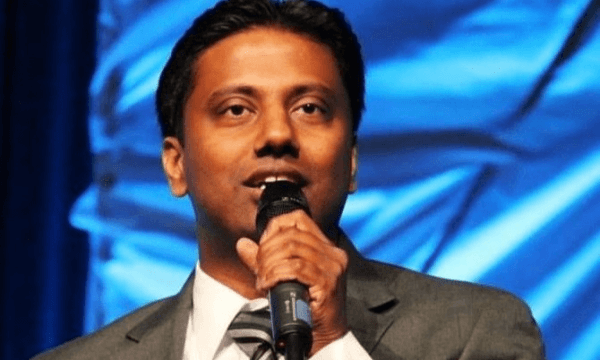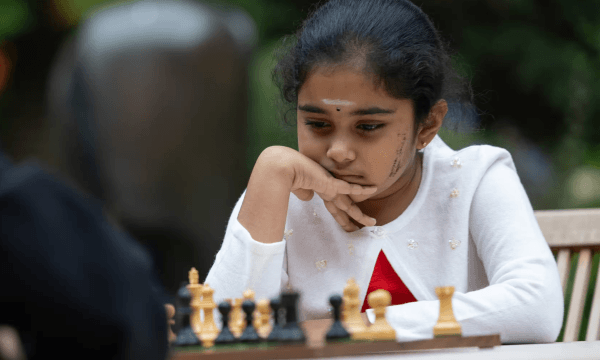
***Know anybody in the global Tamil community with an interesting story or workin on an interesting initiative that we should feature? => FILL OUT THIS FORM ***
I had the pleasure of chatting with Dhananjayan (Danny) Sriskandarajah, who was appointed CEO of Oxfam Great Britain in January 2019, about his work, what motivates him, his advice to young people and more!
- Danny graduated with a Bachelor of Economics and Social Science from the University of Sydney
- He proceeded to complete his Masters and PhD from the University of Oxford where he focused on Development Economics and International Development
- Prior to joining Oxfam, he was Secretary General and CEO of CIVICUS, the Johannesburg-based global alliance of civil society organisations and activists with members in more than 180 countries. He joined CIVICUS in 2013 and was previously Director General of the Royal Commonwealth Society (2009-13). Between 2011-12 he was seconded to be Interim Director of the Commonwealth Foundation.
- I encourage you to watch Danny's TEDxLondon talk here "Looking back, looking forward at Oxfam"
Your organization, Oxfam, strives to eradicate inequality and poverty, challenges which are monumental with no quick solutions. In that landscape, how do you keep yourself motivated to continue to progress and achieve in your work?
I find it incredibly important to remind myself that the injustice of poverty is not inevitable. It’s encouraging to remember that the world has made amazing progress in recent decades, for example raising the poorest people’s daily income, connecting people via mobile phones and the internet, and empowering women and girls. There is of course a long way to go, but this helps me to stay optimistic that further progress is possible. I see huge opportunity in the great upheaval of the coronavirus pandemic to think again about how we look after everyone in our societies - regardless of where they are born or how much money they have – including what basic social safety nets and support they are entitled to.
Can you recollect a failure, or apparent failure, which set you up for later success?
I have a habit of keeping rejection letters from applications for scholarships, internships, jobs and such. I have loads of them and they are a good reminder of how important it is to pick yourself up after each setback – and makes the successes one does have that much sweeter.
Influential figures such as yourself are often asked to talk about advice they’ve found helpful. We’ll take a different approach. What advice would you tell driven, young people to ignore?
First generation migrants like me were often told to work within the system – go to the best schools, get a good job, work your way up the ladder – but I sometimes wish I had branched out and done something different and more radical. I hope the next generation of Tamils take more risks and do some brave stuff that breaks the mould.
Since taking on your role as Oxfam’s Chief Executive, what are some key achievements that you’re really proud of?
I’m proud of how the organisation has responded to the coronavirus pandemic. Oxfam has decades of experience delivering humanitarian aid in emergencies, but this was like nothing we’d seen before so we had to rapidly innovate new ways of working. We’re currently providing aid including clean water, soap and cash grants to help vulnerable communities in around 60 countries protect themselves from disease, feed their families and restart work after lockdown. I’m also very proud of how Oxfam campaigns for change at the global level and raises important issues up the political agenda. We’ve been pushing for the cancellation of debts held by developing countries so they can free up funds to spend on fighting the pandemic, and for a fair global distribution plan for any Covid19 vaccine so that people in poorer nations don't miss out.
There’s a global trend of mistrust of institutions and centralized power, especially amongst young people. Has this had an impact on your organization’s work? If so, how are you working to tackle these types of challenges?
Like all large institutions we are trying to reimagine how we can make a positive difference in the world. I am heartened by the rise in ethical consumption which sees people voting with their wallets for issues they care about, and the amazing growth in social movements that have drawn in people from all walks of life, from Occupy to #MeToo to Black Lives Matter. At Oxfam, we’re working out how we can best be an ally to these sorts of movements.
How do you think non-profit organizations need to evolve to become more accountable and relevant to all stakeholders?
Oxfam’s core values are accountability, inclusiveness and empowerment. We know how we work is as important as what we do, so we work hard to keep people safe, to be both feminist and anti-racist in everything we do, and to be open and transparent about how we use our resources. Participation is also crucial. We are evolving how we engage with all those who want to see a world without the injustice of poverty, to offer a variety of ways they can take action with us, from volunteering at a music festival to lobbying their local parliamentarian. And we are committed to shifting power from headquarters to the communities we work with around the world, including by moving spending and decision-making power to local organisations.
There’s a growing number of social enterprises, who are for-profit organizations (with “triple bottom lines”) - do you view them as competitors?
It will take a concerted effort from all of us, including the private sector, to achieve a fairer economy and a healthier planet. Social enterprises are a fantastic model of a more responsible approach to business, as they are set up to share power and reward more fairly throughout the supply chain. Oxfam is a big believer in the power of business to be a route out of poverty – we helped to set up Fairtrade, for example. We also work with impact investors to support small agricultural businesses, in countries from Nepal to Rwanda, to grow and provide better outcomes for their workers, who are mostly women.
Do you think affluent members of the Tamil community contribute their fair share to philanthropic initiatives outside of the community? Any changes you’d like to see?
I would love to see more Tamil people be active in public life: in civic life, in philanthropy, in politics, in leadership. Many Sri Lankan Tamils of my generation feel a real sense of responsibility – we were lucky to be spared the worst effects of the war in Sri Lanka, our families made huge sacrifices to get us out and adjust to life in far flung parts of the world, and we have been given huge opportunities in our new homes. I hope more of us can give back in each of those areas – to help promote development and peace in Sri Lanka, help address the challenges that our diaspora communities face, and be more active citizens in the communities we live in.
What is your favourite Tamil food?
Puttu - tasty, goes with almost anything and uniquely Tamil.
What is your favourite Tamil movie?
Mundru Mugam. I was a big Rajinikanth fan as a child so I was triply happy with this film.
___
***If you want to connect with Danny, please reach out to him via his TC profile - https://tamilculture.com/user/Danny-Sriskandarajah.***
Related Articles:
"These Tamil Entrepreneurs Share How They Grew Their Side Hustles"
"Angel Investor Jay Vasantharajah On Building His Portfolio One Day At A Time"
"Coronavirus Took My App From Our Lives"
"This Toronto-Tamil Family Is Living Minimally To Maximize Their Quality of Life"
17-Year-Old Anjalee Narenthiren is the Founder of Not One, But Two Companies
***Looking to create your love story? Join the other couples who have dated and got married through myTamilDate.com!***
"How a Message on myTamilDate.com Led to an Engagement for Lavanya & Vitharan"

























